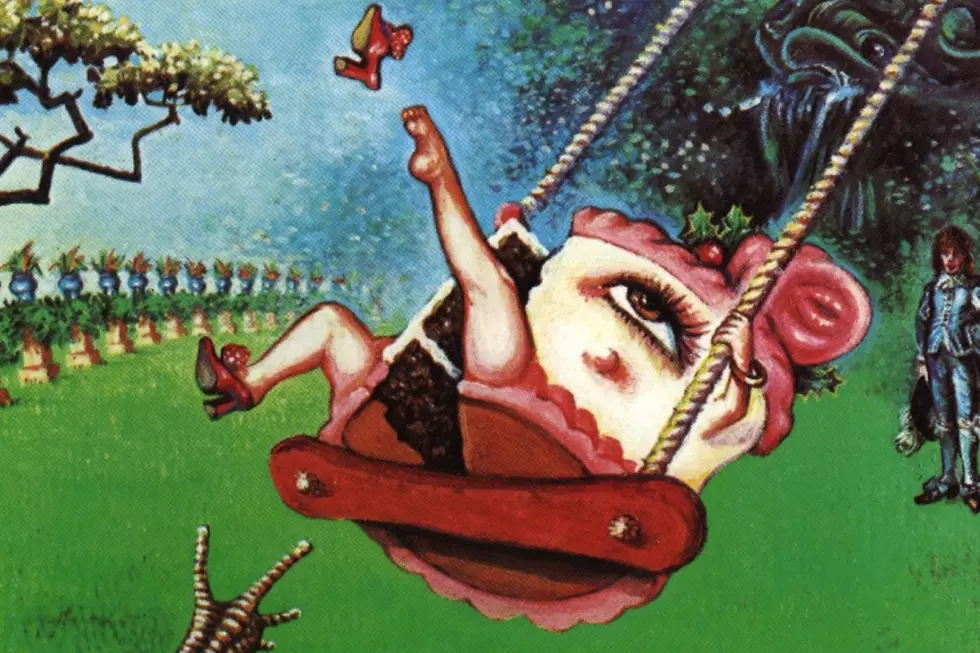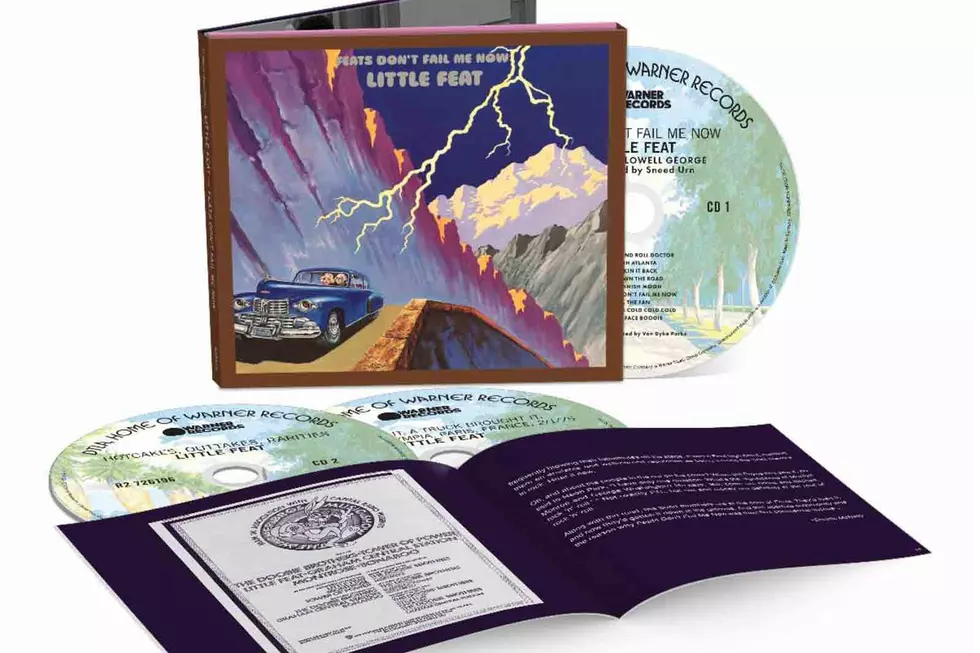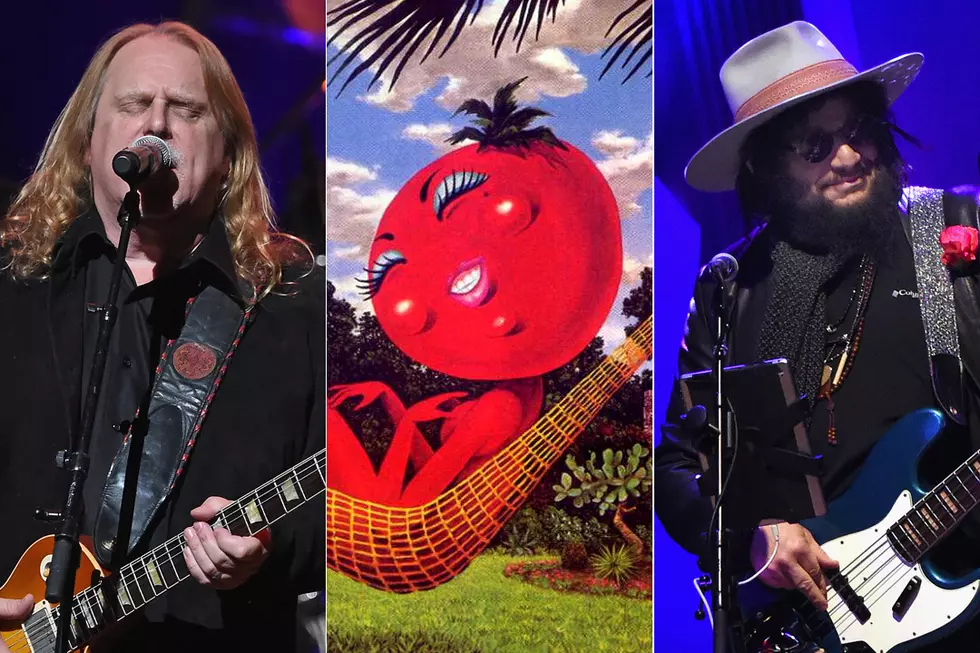
How Little Feat Found Their Voice on ‘Sailin’ Shoes’
Little Feat's long, strange musical journey took a satisfying creative leap with their second album, 1972's Sailin' Shoes — but if not for some lucky breaks and passionate interventions by fans of the band at their label, the record might never have been released at all.
In fact, after the abject failure of their self-titled debut, Little Feat were at dangerously loose ends with Warner Bros. — a record company that, at the time, was in the midst of building a real reputation as an artist-friendly imprint with an admirable tolerance for low-selling acts. But even by Warners' standards, the Little Feat record had been a disaster, and one that had been further plagued by the professional fallout between producer Russ Titelman and Feat frontman Lowell George. For a period, it looked like the group might end up out of a deal.
"Warners made no commitment after the first record and refused to finance a second one," label recording artist and A&R exec Van Dyke Parks said in Rock and Roll Doctor. "Little Feat were, in effect, dropped from the label."
Parks, however, was determined to salvage Little Feat's fortunes at Warner Bros. — and he enjoyed the support of some like-minded staffers at the label, where it was ultimately decided they'd get a second shot. Needing a new producer, they turned to new company arrival Ted Templeman, who'd moved into production after a stint as the drummer for Warners act Harpers Bizarre. Already a fan of the band, Templeman eagerly accepted the opportunity to helm their sophomore outing, at least in part due to his fascination with Feat drummer Richie Hayward.
"I used to go and watch their shows, ’cause I never quite heard a drummer play like Richie. It was just a killer. And I wanted to produce them," Templeman said in Willin': The Story of Little Feat. "I was a drummer myself, and when you hear a drummer like Richie, plus the tunes. I think I was assigned to it, but at Warners, nobody was assigned anything. ‘If you want it, fine ... ’ But I was jumpin’ at it ’cause I had been doing the Doobie Brothers and working with Van Morrison all at once. And these guys were monsters in terms of musicians."
Listen to Little Feat Perform 'Easy to Slip'
Little Feat's budding reputation as a "musician's band" was something that would later prove a source of annoyance for George, who resented anything that threatened to pigeonhole the relentlessly eclectic group. Although they were definitely stacked with musical talent, and their songs were frequently peppered with unexpected chord changes and unorthodox structures, no one in the lineup was too much of a muso to appreciate a good old-fashioned hit. They just played how they played — and the results were often as solidly satisfying as they were breathtakingly thrilling, a singular balance between songcraft and chaos.
"We were a freight train comin' atcha – kickin’ ass. We were always opening slots and blowing people off," guitarist Paul Barrere, who joined the lineup the following year, marveled in 2008. "Little Feat weren’t showmen; we didn’t have a catalog of hits. We just played. We had a jazz combo sensibility à la Miles Davis, plus a black R&B thing, down to Kenny’s bass and Sam’s percussion. Lowell was phenomenal – he made his slide, which he played with an old spark plug, conjure up Hawaiian melodies or pedal steel. It was so eclectic that we could be out of our skulls and still function. It was nirvana onstage, and it was funny."
That attitude bloomed during the Sailin' Shoes sessions, producing an 11-song track listing that nimbly walked the line between cockeyed caucasian blues and radio-friendly rock 'n' roll. The band's awareness of its uncertain future can be heard on the album's opening track, "Easy to Slip," which edges as close to aiming for a hit as the group could get at the time. It's catchy enough, but the arrangement also underscores Little Feat's commercial Achilles' heel: Instead of beating the listener over the head with its refrain, it's only repeated a couple of times. The second track, "Cold, Cold, Cold," is a howling lament filtered through Templeman's studio experimentation (George's vocals were tracked with an amp that was shut away in a bathroom) and George's own unorthodox writing style.
"The odd 2/4 bars in 'Cold Cold Cold' came about in a strange way. Lowell had been playing with his drum machine at home. At that time, drum machines were very primitive. It was just a little red box with two knobs on it," Hayward told Modern Drummer in 1988. "He had the basic pattern repeated over and over again, and he played it with just himself and a little amplifier on a cassette at home. Somehow he edited the cassette, put it on a 16-track tape, and had me overdub drums. It’s funny because this drum part was turned around a couple of times due to the way he cut it together to fit. He wanted me to copy it and throw in fills."
Listen to Little Feat Perform 'Willin"
The record's most impactful song by far, however, would be one Little Feat previously recorded for its debut: "Willin'," a weary trucker's anthem brought to life on Sailin' Shoes by the full band after being heard in a semi-embryonic state on the previous LP. Although George's knack for undermining his own commercial prospects kept the song from being a hit — no single extolling the virtues of "weeds, whites and wine" was going to gain any traction on the airwaves in the early '70s — it helped widen the band's expanding circle of admirers, becoming one among a growing list of Feat cuts soon to be covered by higher-profile artists.
It was Little Feat's peer group that ended up further burnishing the band's reputation in the years immediately following the release of Sailin' Shoes. While the album proved another non-starter on the charts after its arrival in May 1972, it helped open a series of session opportunities for the members of the band, who were heard backing up a succession of artists that included Bonnie Raitt, the Doobie Brothers, Jackson Browne, Carly Simon, Harry Nilsson and Robert Palmer.
In time, the group's own commercial profile would rise, but in the meantime, their second LP proved the raw energy of their debut was in the process of being harnessed into something even more rewarding.
"There’s so much more maturity in the record. We got a little bit more used to recording. I think Lowell’s chops as a writer – and mine too with Richie – were starting to kind of blossom," keyboardist Bill Payne pointed out years later. "It put us on the map. Not sales-wise, but as a group to be taken seriously."
Top 100 Live Albums
Little Feat Issued One of Rock’s Most Underrated LPs
More From Ultimate Classic Rock









